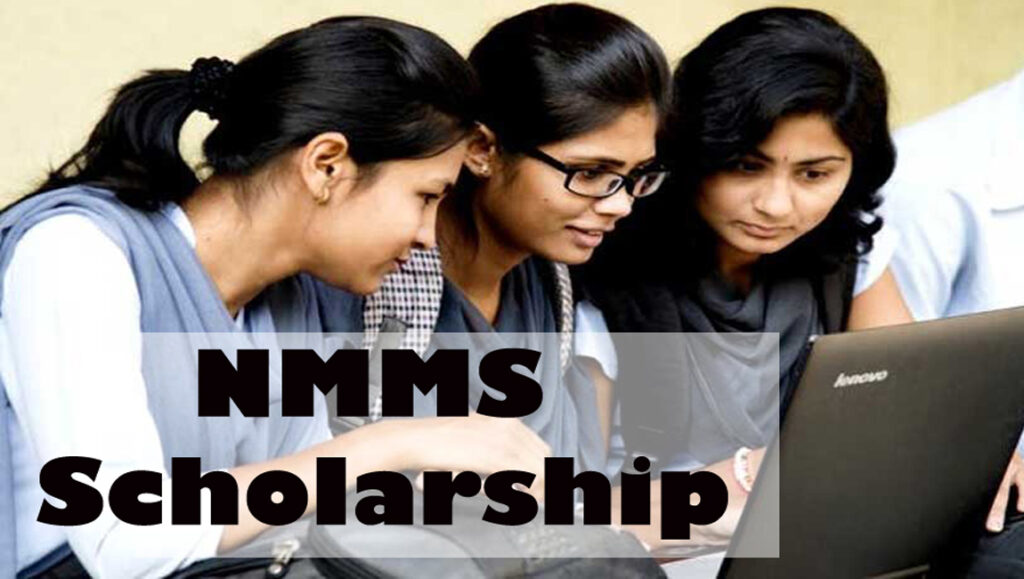The NMMS (National Means Cum Merit Scholarship) is a centrally sponsored scheme implemented by the Government of India to support meritorious students from economically weaker sections of society. Here are some key points about the NMMS scholarship.
Contents
Objective
The primary objective of the NMMS scholarship is to reduce the dropout rate at the secondary education level by providing financial assistance to economically disadvantaged students.
Eligibility Criteria
Typically, The NMMS examination is conducted for students studying in class 8. and belong to economically weaker sections are eligible to appear for the NMMS examination. The specific eligibility criteria may vary from state to state.
NMMS Scholarship for Jharkhand Students 2024-25
Selection Process
The selection process for the NMMS scholarship involves a two-stage examination. The first stage is a written examination conducted by the respective State or Union Territory (UT) governments. Students who qualify in the first stage are eligible to appear for the second stage, which is a national-level examination conducted by the NCERT (National Council of Educational Research and Training).
Scholarship Amount
Students selected for the NMMS scholarship receive financial assistance of Rs. 12,000 per annum at the rate of Rs. 1000 per month. The scholarship amount is disbursed directly into the bank accounts of the beneficiaries.
Duration
The NMMS scholarship is typically awarded for a period of four years, covering the entire duration of secondary education (classes 9 to 12).
Renewal
The scholarship is renewable on an annual basis, subject to the student maintaining a certain level of academic performance and attendance.
Application Process
The application process for the NMMS scholarship varies from state to state. Generally, interested students need to apply through their respective schools or through the online portal provided by the concerned State or UT government.
Benefits
Apart from providing financial assistance, the NMMS scholarship also encourages students to continue their education beyond the secondary level and pursue higher studies.
Overall, the NMMS scholarship plays a crucial role in promoting educational opportunities for deserving students from economically disadvantaged backgrounds and fostering their academic growth and development.
Syllabus of NMMS Examination
Mental Ability Test (MAT):
- Analogies
- Classification
- Series
- Coding-Decoding
- Blood Relations
- Logical Venn Diagrams
- Mathematical Operations
- Directions
- Missing Characters
- Non-verbal Reasoning (including patterns, figures, and shapes)
Scholastic Aptitude Test (SAT):
- Mathematics: Topics from class 7 and 8 syllabus including Number System, Algebra, Geometry, Mensuration, Data Handling, etc.
- Science: Basic concepts in Physics, Chemistry, and Biology from class 7 and 8 syllabus.
- Social Studies: History, Geography, Civics, and Economics topics covered in class 7 and 8 syllabus.
It’s essential for students preparing for the NMMS examination to thoroughly study their class 7 and 8 textbooks and syllabus. Additionally, practicing sample papers and previous years’ question papers can help students familiarize themselves with the exam pattern and improve their problem-solving skills.
FAQs
1. Who can apply?
Students enrolled in class VIII.
2. What is the minimum qualifying marks in class VII?
55% (50% for reserved categories)
3. What should be the Annual parental income?
It should not be more than Rs. 3,50,000.
4. How to continue NMMS scholarship for 4 years?
Candidates must secure 55% (50% for reserved categories) in each final exam.
Candidates must get clear promotion in each final exam of class 9th & 11th.
5. Who are not eligible for NMMS?
-Students of Jawahar Navodaya Vidyalaya, Kendriya Vidyalaya, Sainik schools.
-Students studying in residential schools run by state government institutions with facilities like boarding, lodging and education.
-Students pursuing their studies in private schools.
Important Dates
This NMMS Scholarship is generally declared every year in the month of July and its deadline falls in the month of October. This application period is provisional as it varies from year to year.






